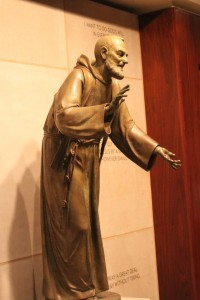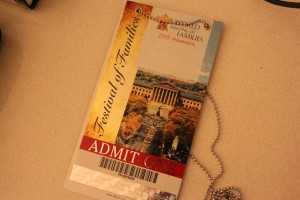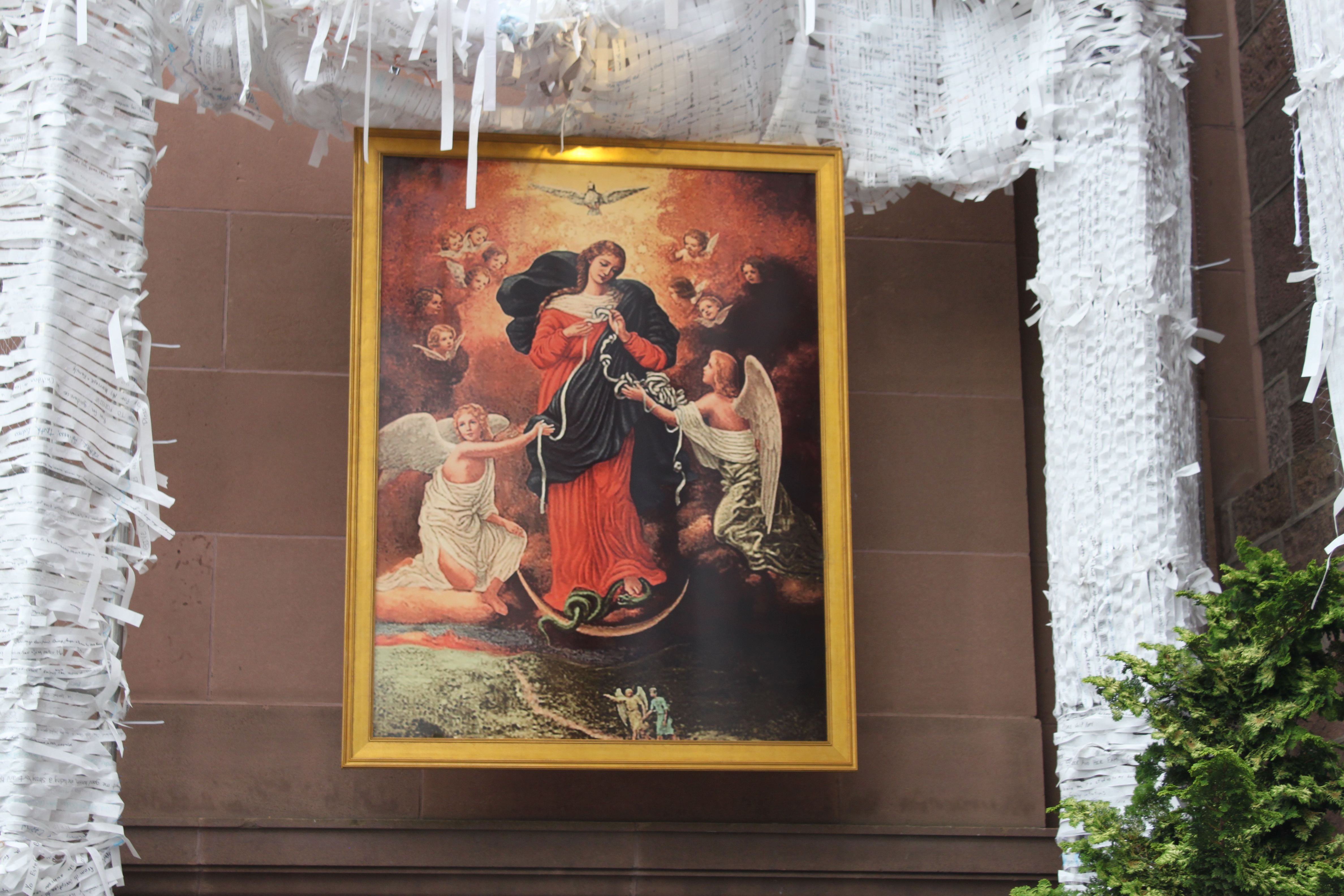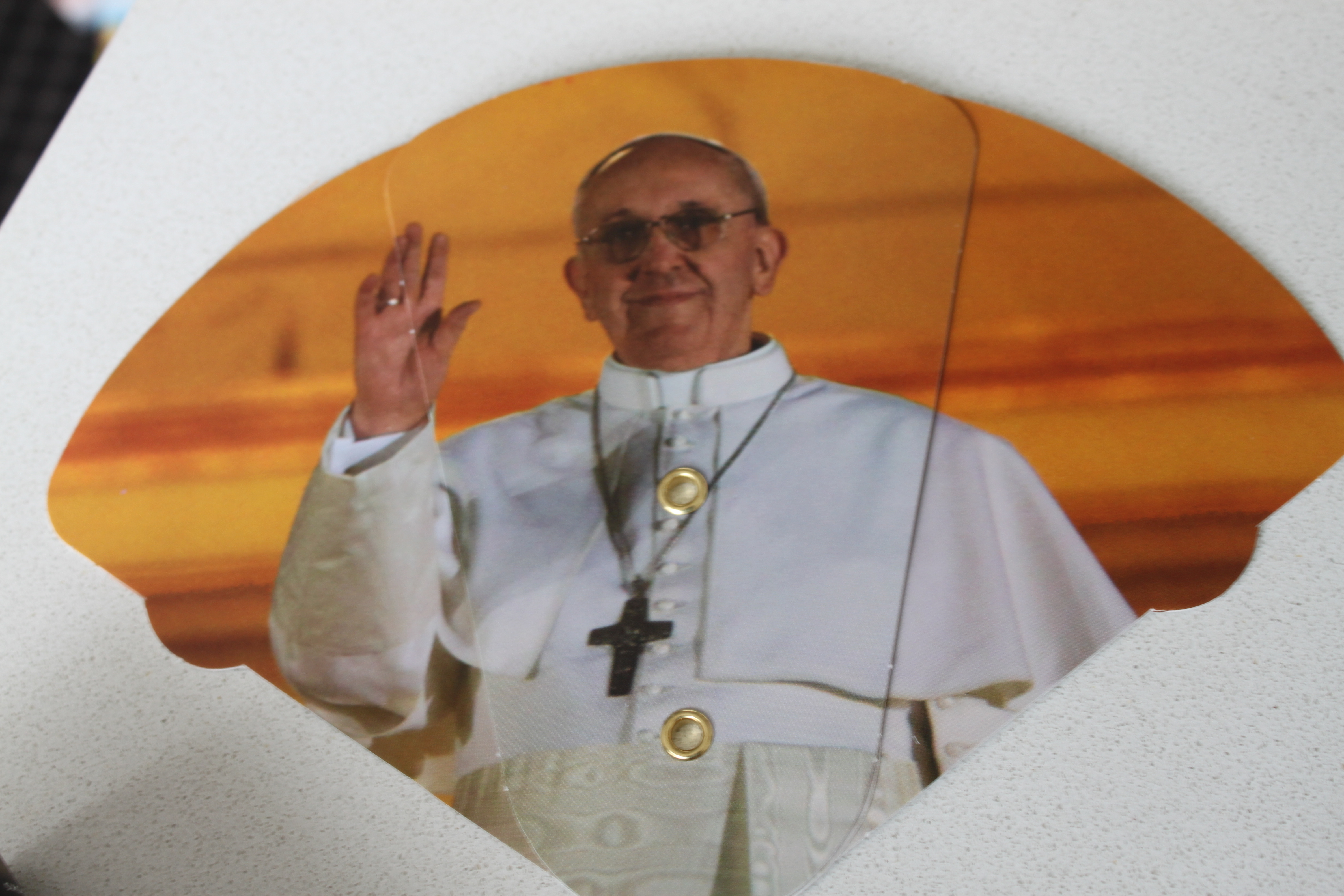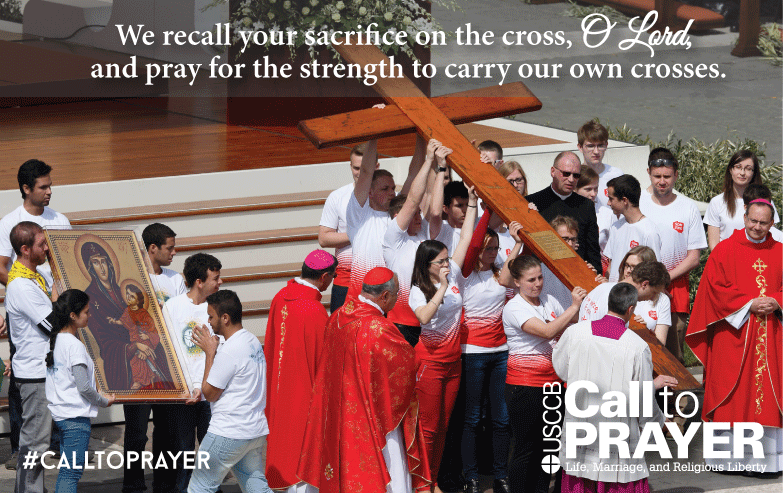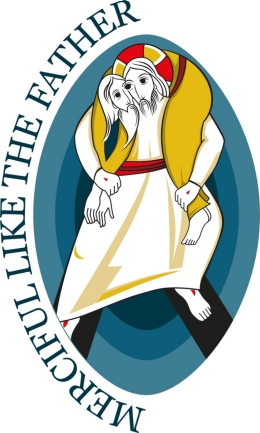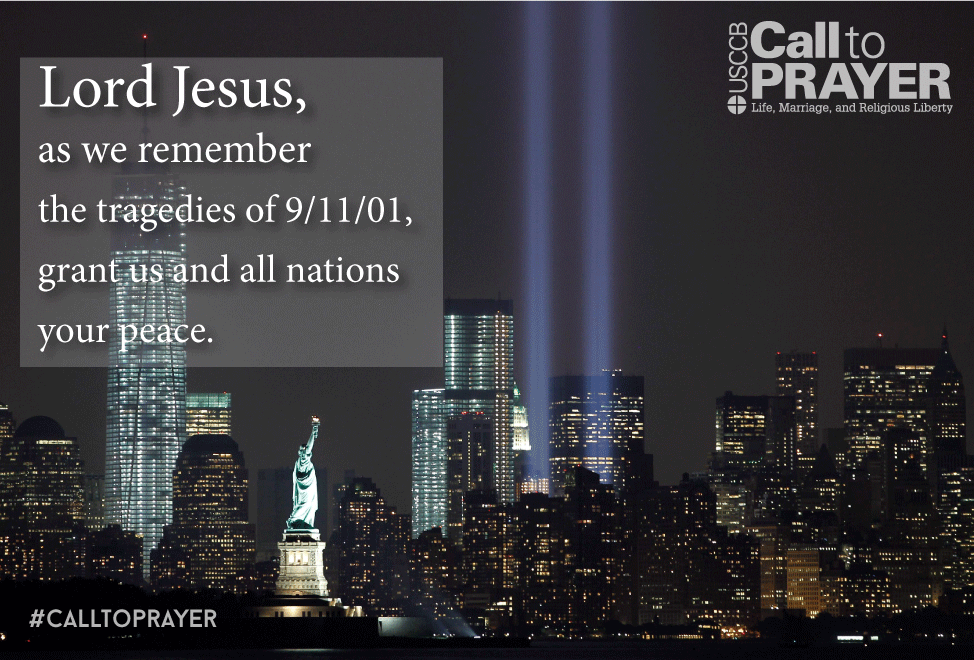Bishop Olmstead: Into the Breach
 Bishop Olmstead of Phoenix, Arizona released a pastoral letter to men entitled “Into the Breach”; it is a profound reflection on what it means to be a Catholic Christian man in today’s world.
Bishop Olmstead of Phoenix, Arizona released a pastoral letter to men entitled “Into the Breach”; it is a profound reflection on what it means to be a Catholic Christian man in today’s world.
There’s a video to accompany it. Check them out!
Archive
World Meeting of Families: Thursday and Friday
Internet is slow, so here are a few notes and pictures from Thursday and Friday. First is the set-up for the Festival and mass. I know you can’t see it that well but there were fences everywhere!
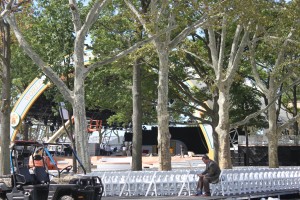 Next, there was the opportunity to venerate St. Maria Goretti at St. John the Evangelist. (She has a tour bus…)
Next, there was the opportunity to venerate St. Maria Goretti at St. John the Evangelist. (She has a tour bus…)
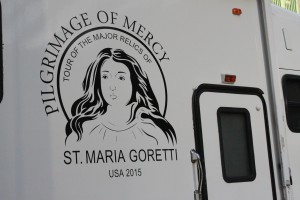 The jumbo-trons have been tested and found ready!
The jumbo-trons have been tested and found ready!
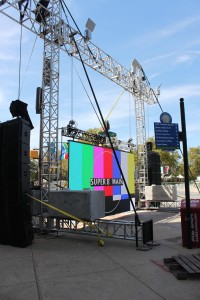 The hallways sometimes got very crowded at the conference center:
The hallways sometimes got very crowded at the conference center:
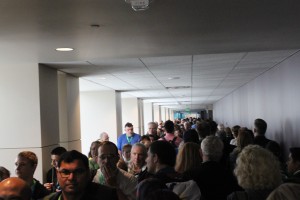 And an Oratorio was performed at St. John on Thursday evening, with a bishop from Ireland introducing everyone.
And an Oratorio was performed at St. John on Thursday evening, with a bishop from Ireland introducing everyone.
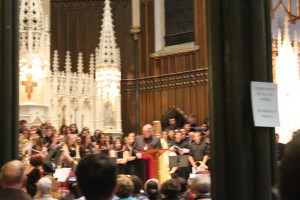 By Friday, security check-points were already up and running, and it is not always clear whether the street you’re on is going to continue…
By Friday, security check-points were already up and running, and it is not always clear whether the street you’re on is going to continue…
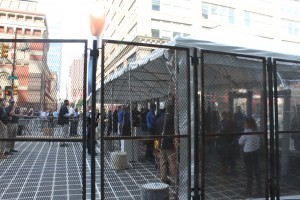 The Reading Terminal Market is getting pretty crowded…
The Reading Terminal Market is getting pretty crowded…
 And the Benjamin Franklin Parkway is closed and people are enjoying walking on the street.
And the Benjamin Franklin Parkway is closed and people are enjoying walking on the street.
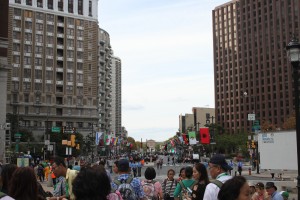 We are all READY for the Papa!!!
We are all READY for the Papa!!!
Archive
World Meeting Day 3
Today is the feast day of St. Pio of Pietrelcina (Padre Pio). The parish near the hotel, St. John the Evangelist, here in Philadelphia is run by Capuchins, and they have one of St. Pio’s gloves. The priest today brought out the glove– and I do mean the glove, not a piece of it under glass– and we were able to venerate it after mass. It was a wonderful surprise grace!
Here’s a shot of part of lunchtime, to give you a sense…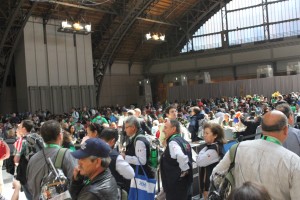
The two keynote speakers today were Robert Cardinal Sarah and Helen Alvare. They were both excellent. And finally… the moment came to pick up our tickets for the Papal events!
Archive
World Meeting: Day 2
Today, I went down to the Franklin Institute to view the Vatican Splendors exhibit. It was awesome!
I also stopped by the Cathedral and added my own intention to the knots– a surprisingly moving experience.
I will also share more from Bishop Barron’s excellent keynote today- if you follow us on Twitter, I put a few quotes up.
Archive
Audio from Prep Day
Sara Perla reports from the ground at the WMOF!
Archive
World Meeting Arrival
Hi everyone!
Our team is arriving today to Philadelphia to be part of the World Meeting of Families. Here are some shots of what’s happening, a day before it all begins!
First shot is the registration area:
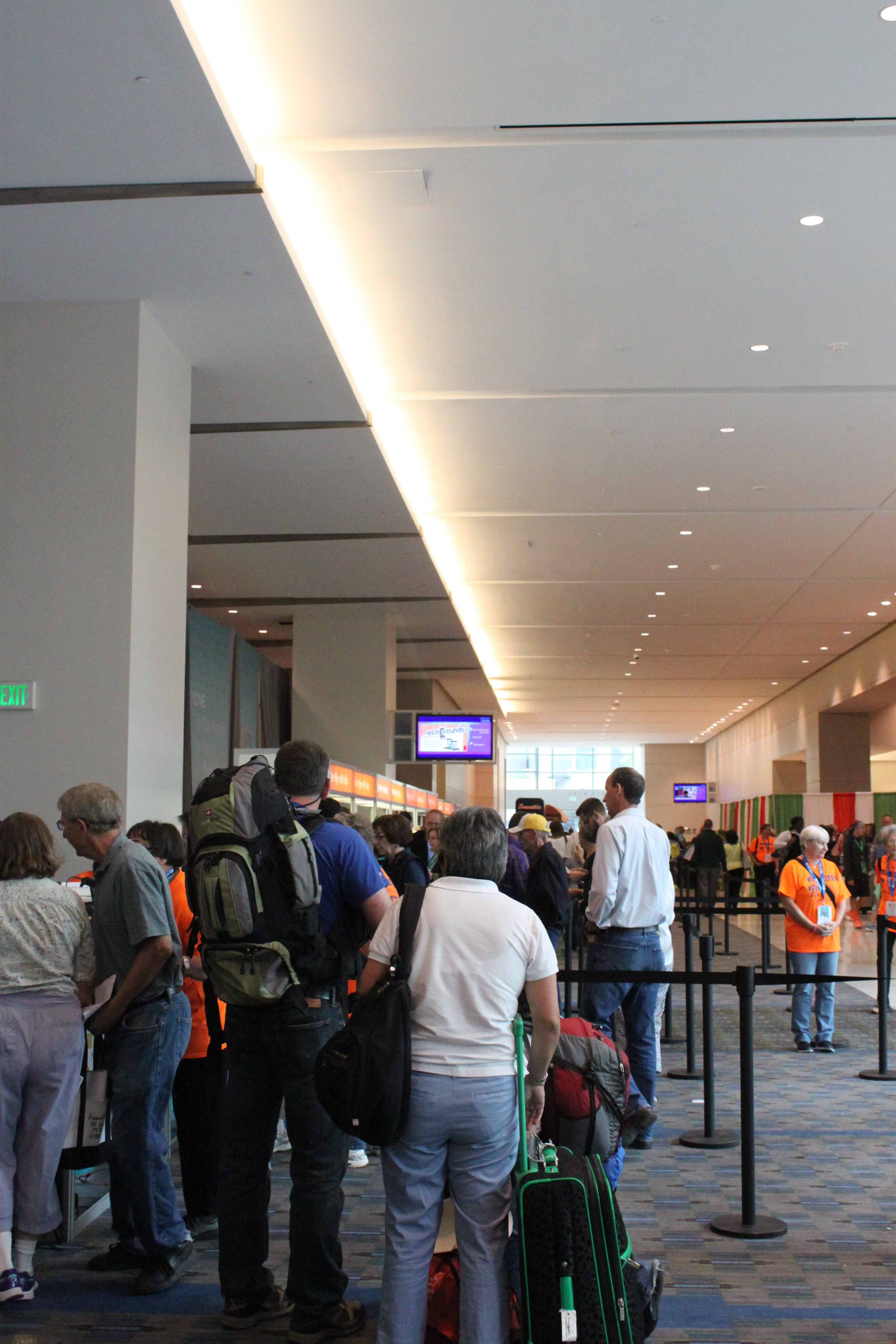
This was the police (seemingly) practicing parking in formation…
And this is the best souvenir so far- a fan!!
Archive
Call to Prayer: September 18, 2015
Archive
Bishop Conley: “To Deny Reality”
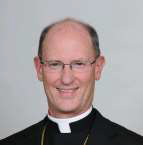 Bishop Conley of the Diocese of Lincoln, Nebraska wrote a column in the Southern Nebraska Register entitled “To Deny Reality” referencing the Supreme Court decision that redefined marriage throughout the country.
Bishop Conley of the Diocese of Lincoln, Nebraska wrote a column in the Southern Nebraska Register entitled “To Deny Reality” referencing the Supreme Court decision that redefined marriage throughout the country.
Bishop Conley began the column speaking about the call to all human persons to “live in families patterned after the divine communion of the Most Holy Trinity, the divine family of God.” He continued on to say that, “Because God created us to live in the image of his divine communion, children have a natural right to live in families of one man and one woman.”
Bishop Conley used quotes from the 2003 document from the Congregation for the Doctrine of the Faith “Considering Regarding Proposals to Give Legal Recognition to Unions between Homosexual Persons” which is still the touchstone Vatican document on this question. The bishop showed that the government has done harm to the common good by ignoring the fundamental value of the natural family, and said that “Catholics cannot deny reality.”
Drawing practical conclusions from the Vatican document, Bishop Conley explained to the faithful: “Catholics cannot directly facilitate any government action to sanction same-sex unions as marriage. And they must resist even cooperation in same-sex marriage.” He noted that this may sometimes mean leaving one’s position, which he called a “heroic witness.” He asked any Catholic who finds him- or herself in this position to speak to his or her pastor about it. And finally, Bishop Conley reminded his readers that God gives us the grace to be faithful to Him, and, “Everything we do should be in gratitude to that grace. And each of us should do all that we can to reveal that truth to the world.”
Archive
Mercy and Truth Shall Meet: A Pastoral Letter from Bishop O’Connell
Bishop David M. O’Connell, CM of the Diocese of Trenton has issued a pastoral letter for the Jubilee of Mercy, entitled, “Mercy and Truth Shall Meet.”
In the letter, Bishop O’Connell reflects upon Pope Francis’ letter on the Extraordinary Jubilee of Mercy and what living by mercy indicates in terms of “intentions, attitudes and behaviors” (VM, 9). The bishop highlights numerous passages of Sacred Scripture that speak about mercy and its revelation as a free gift of God in the Church.
Bishop O’Connell illuminates the intrinsic relationship between mercy and truth. For truth, he uses the definition of St. Thomas Aquinas: “Truth is the conformity of the mind to that which exists in reality” (ST I, 16.1). Truth is being able to see what is, and Jesus announces Himself as “the way, the truth and the life” (Jn 14:6). Walking with Christ, and thus walking with the Truth, the Catholic Church “is still responsibly for revealing truth, presenting truth, teaching truth, and witnessing truth, day in and day out, every day” (p. 6).
Quoting the Second Letter to Timothy, Bishop O’Connell addresses the temptation that all human beings have to “have their ears tickled,” in other words, to look around for teachers who will tell them what they want to hear. On the contrary, the bishop notes, the Catechism teaches that all persons “are bound to adhere to the truth once they come to know it and direct their whole lives in accordance with the demands of truth” (CCC 2467). He emphasizes, “Truth is not truth because we believe it. Truth is true whether we believe it or not [emphasis original]”(p. 7).
Despite the current narrative, mercy is nothing “new” in the Church, Bishop O’Connell says. To teach that “anything goes” is neither true nor merciful– neither, he says, is it “pastoral” to neglect doctrine. He asks, “How can something truly ‘pastoral’ or ‘merciful’ not flow from what we profess and believe?” (p. 7).
Bishop O’Connell uses the story of the woman caught in adultery as the epitome of the conjunction of mercy and truth. In this episode (Jn 8:1-11), Jesus does not abolish the law or deny the woman’s sin; rather, he refuses to condemn her and admonishes her to live differently in the future. “Go. From now on, sin no more” (Jn 8:10-11). The bishop writes, “He sent her on her way, without compromise, reminding her to follow truth.”
In conclusion, Bishop O’Connell tells the faithful of the Diocese of Trenton, “We should never abandon truth simply because it is not easy, convenient or popular” (p. 8). Mercy and truth meet in the person of Christ, “And mercy, authentic mercy, always includes and never denies truth” (p. 8).
